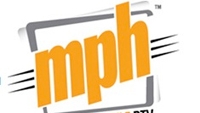WRAL tests mobile DTV

WRAL-DT, the CBS affiliate in Raleigh-Durham, NC, owned by Capitol Broadcasting Company (CBC), conducted a series of mobile DTV tests last week using the Mobile-Pedestrian-Handheld (MPH) system promoted by Harris Broadcast and others. Hosted by CBC’s New Media Group, the tests featured seven handsets given to station executives living in different parts of the state. Users reported reliable signal reception in most parts of the station’s existing coverage area.
To kick off the July 21-25 trial, the station hosted a reception last Tuesday in which about 50 participants were driven in a bus around the area with prototype LG Electronics mobile handsets that featured MPH-compatible reception chips inside. Signal reception of two channels (half rate at 600kb/s and one-quarter rate at 300kb/s) using about 4.5Mb/s (including turbo coding) of the station’s 19.4Mb/s on-air DTV stream was reportedly strong everywhere they went during the 10-minute ride — even at 70 miles per hour.
The goal of the service, according to John Harris, WRAL’s director of programming, is to extend the reach of the station’s television channel, and make it available everywhere our viewers are. The initial plan is to simulcast the on-air DTV signal. WRAL-TV broadcasts CBS network and its own local programming in the 1080i HDTV format as well as in SD digital.
“We’re excited about the possibilities,” John Harris, WRAL’s director of programming, told Broadcast Engineering. “The priority is to offer WRAL’s TV signal in another way, in another place. I took one [handset] east of the station and I just kept driving until the signal dropped out. I got pretty far before that happened, so I can see the potential of this service.”
LG Electronics, Zenith Electronics and Harris, all proponents of the MPH scheme, helped out with the field trials. WRAL-DT uses a Harris Sigma CVD UHF transmitter, with an MPH module, for the weeklong test.
In a statement, James F. Goodmon, CEO of CBC, said “mobile DTV broadcasting enables WRAL to better serve our viewers, communities, and advertisers by providing a strong combination of anywhere access, two-way communication, and mobility.”
In 1996, Harris worked with WRAL-DT as one of the first DTV stations in the country. Two years later, when John Glenn made his historic return to space, Harris worked with WRAL to conduct the first live HDTV broadcast of a space shuttle launch to audiences nationwide. Now, the station is the first to promote mobile DTV service in the state of North Carolina. WRAL predicts that more than 200 million portable devices will be sold in 2008, although few if any will have the necessary MPH reception chips inside.
Get the TV Tech Newsletter
The professional video industry's #1 source for news, trends and product and tech information. Sign up below.
WRAL-TV and Capitol Broadcasting Company are part of the Open Mobile Video Coalition (-www.openmobilevideo.com), a nationwide group of broadcasters driving the deployment of mobile digital broadcast television. Commercial deployments are forecast for 2009. The group hopes to have an established standard available to broadcasters by the February 2009 analog shutoff date.
